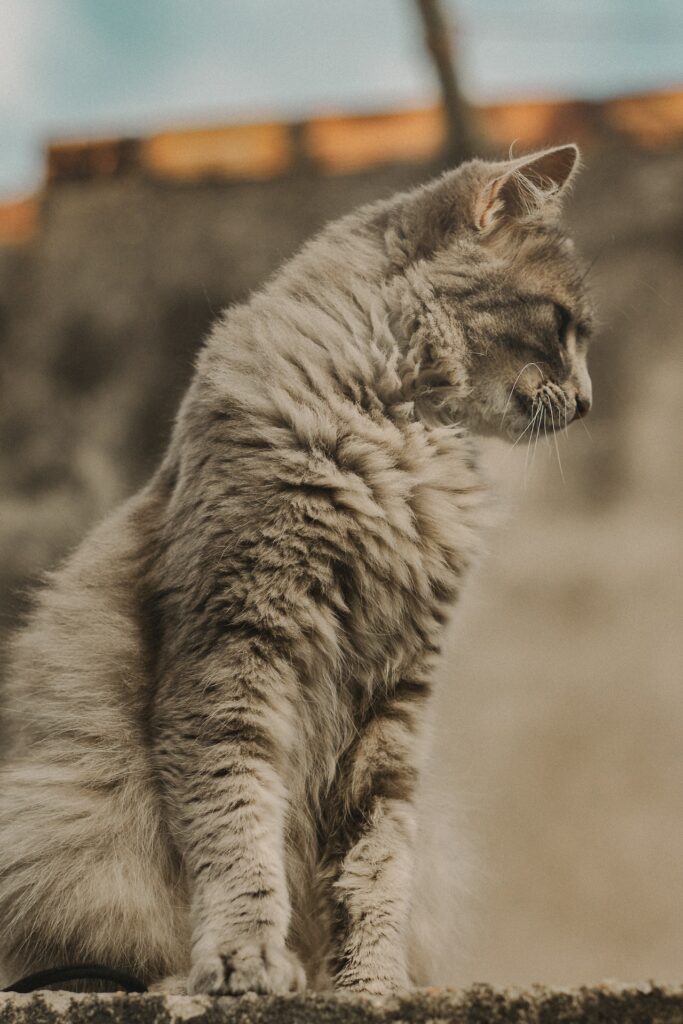Why Does My Older Cat Drink a Lot of Water?
Do you have an older cat that seems to drink more water than usual? If so, it could be a sign of something more serious. In this article, we’ll discuss why older cats might be drinking a lot of water and what you can do as a pet parent to help support your older cat’s health. We’ll also cover when it is necessary to take your older cat to the vet and what medical tests may need to be done to determine the underlying cause of excessive thirst. Read on for all the information about older cats drinking a lot of water!
Health Conditions That Impact Water Consumption
Several health conditions can cause an older cat to drink more than normal. These include:
Kidney Disease:
Kidney disease is a common condition in ageing cats, and it can cause increased thirst due to the inability of the kidneys to filter out toxins efficiently. This can lead to dehydration and the need for more fluids in order to keep your pet hydrated. If you suspect kidney disease, you must take your cat to the veterinarian for diagnosis and treatment options.
Diabetes:
Diabetes is another condition that affects many older cats, however, it is often very treatable with medication and diet management. Diabetic cats tend to be excessively thirsty due to their body’s inability to regulate blood sugar levels properly. This leads to increased urination and water intake to balance their glucose levels.
Hyperthyroidism:
An overactive thyroid gland can cause your cat’s metabolism rate to speed up, leading them to become increasingly thirsty as its body attempts to metabolize excessive amounts of energy. As such, hyperthyroidism can also factor in increased water consumption among senior cats.
Medication Side Effects:
Certain medications may contain diuretic properties which can act as a stimulant on the body’s thirst response mechanism, causing your pet’s need for additional fluids while taking certain drugs or supplements prescribed by your vet.
Diet & Lifestyle Factors
Ageing cats may also require more water if they do not consume enough nutrients or lack sufficient exercise and stimulation throughout the day. Here are some things that could be contributing factors:
Nutrient Deficiencies:
If your pet isn’t getting enough essential vitamins and minerals from their food or treats, this could make them feel lethargic and dehydrated due to a lack of energy reserves within their system. To avoid this, make sure you are feeding them high-quality food from reputable brands with adequate levels of proteins, fats, carbohydrates, vitamins and minerals present in each mealtime serving portion size.
Lack Of Exercise & Stimulation:
Cats rely on regular physical activity as well as mental stimulation during playtime activities for them to feel satisfied throughout the day and remain agile enough into old age without losing any strength or agility in movement patterns like jumping or climbing up high surfaces around the home environment. Make sure you provide plenty of toys for them each day so that they have something fun to do throughout the hours spent indoors resting between meal times!
By providing extra attention towards the nutrition, exercise and overall well-being needs of your ageing cat (especially if there are any underlying medical issues present), should go a long way towards keeping them happy at home with consistent hydration levels maintained over time too!
Conclusion
It’s understandable why an older cat would need more fluids than when they were younger – especially if any underlying health conditions such as kidney disease or diabetes have been diagnosed by veterinarians recently – but it’s also important not to forget about lifestyle factors too when trying to find out exactly why your pet might be drinking lots water all sudden! Providing adequate nutrition, regular exercise activities & mental stimulation during playtimes with family members at home should help keep the thirst quenched long-term without worrying about health complications arising either!
If you’re worried about the cost of medical care for your older cat, don’t forget to get them insured with furrr.co.uk! With their comprehensive pet insurance plans, you can rest assured knowing that your older cat is protected against unexpected veterinary bills and any other health complications arising in the future. Get started today and give yourself peace of mind regarding your beloved pet’s health!
Thanks for taking the time to read this article – we hope it has been helpful! Subscribe now to stay up-to-date with all the latest news from Furrr.co.uk and receive free tips on how to keep your older cats healthy and happy at home!
Happy Petting! 🙂










